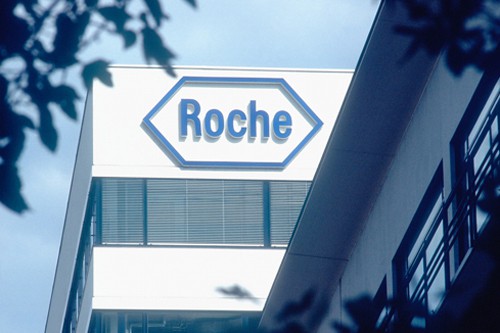
Almost a year ago, Roche’s immune checkpoint inhibitor tiragolumab became the first anti-TIGIT therapy to gain breakthrough designation by the US Food and Drug Administration (FDA) after more than a decade of research.
The FDA decision was based on data from the phase 2 CITYSCAPE study that is evaluating tiragolumab plus Roche’s PD-L1 inhibitor Tecentriq (atezolizumab) compared with Tecentriq alone in first-line PD-L1-positive, locally advanced unresectable or metastatic non-small cell lung cancer.
In January 2021, the data suggested that the combination showed an improvement in overall response rate (ORR) of 37% vs 21% with Tecentriq alone and a 42% reduction in progression-free survival (PFS) over Tecentriq alone after an average of 10.9 months follow-up.
People with high levels of PD-L1 saw a 66% ORR (versus 24% for Tecentriq alone).
Now, Roche has announced longer-term data from the trial that shows ‘encouraging results’ at 2.5 years median follow-up. The intention-to-treat population (ITT) – all randomised study participants – continued to show an improvement. After 2.5 years, tiragolumab and Tecentriq reduced progression-free survival by 38% and improved ORR (38.8% vs 20.6%) compared with Tecentriq alone.
However, this improvement was driven by strong performance in the high PD-L1 population, which showed a 71% reduction in the risk of disease worsening or death and a clinically meaningful improvement in ORR (69% vs 24.1%) compared with Tecentriq alone.
“These encouraging results suggest that combining anti-TIGIT and anti-PD-L1 cancer immunotherapies such as tiragolumab and Tecentriq could potentially represent a novel approach to address unmet needs in cancer,” said Dr Levi Garraway, chief medical officer and head of global product development at Roche. “With tiragolumab, we have the largest and most advanced anti-TIGIT clinical programme, and we look forward to the results of our phase 3 trials in lung cancer and other challenging tumour types.”
Tiragolumab is a first-in-class novel immune checkpoint inhibitor that selectively binds to TIGIT, a novel inhibitory immune checkpoint that suppresses the immune response to cancer. The TIGIT pathway is distinct but complementary to the PD-L1/PD-1 pathway and dual blockade may help overcome immune suppression and restore the immune response.
Overall survival (OS) was a secondary endpoint in the CITYSCAPE study. After 2.5 years, median OS was 23.2 vs. 14.5 months in the ITT population, driven by a ‘clinically meaningful OS improvement’ in the PD-L1-high population. ‘The median was not reached for the tiragolumab regimen and is projected to be greater than 30.3 months based on the lower confidence interval,’ said Roche.
In addition to the phase 3 SKYSCRAPER-01 trial, which aims to confirm these results in the PD-L1-high population, Roche has initiated four more phase 3 trials evaluating tiragolumab plus Tecentriq in early and metastatic disease in both lung and oesophageal cancers.
Tiragolumab is also being evaluated in other solid tumours as well as in haematological cancers.




